In today’s dating landscape, love isn’t just about chemistry — it’s about politics. As the country grows more polarized, young people are increasingly unwilling to date outside their ideological bubbles. For many, political beliefs aren’t just opinions, they are deeply tied to identity, morality and core values. Dating someone with opposing views isn’t just a matter of disagreement — it can feel like an incompatibility too big to ignore.
Apps like Hinge and Bumble now allows users to see matches based on the political party you align with. The ability to filter out potential partners based on their political leanings offers a sense of control, avoiding uncomfortable conversations before they even happen. What was once just another characteristic in a person’s profile — like their height or favorite TV show — has now become a defining factor in romantic compatibility.
According to the American Survey Center from January 2020, the dating site OkCupid reported a 64% increase in political terms appearing in profiles shortly after the 2016 presidential election of Donald Trump and Hillary Clinton. A 2017 study by eHarmony found that almost half of users mentioned Trump either positively or negatively.
Since 2020, there have been several divisive global political events: the Black Lives Matter movement after the death of George Floyd among others, the Isreal-Hamas War, the Covid-19 Pandemic and most recently, Trump’s reelection. By effect, numerous apps, including Bumble, Tinder, OKCupid and Hinge, all began to change their algorithms to meet users’ desire to filter people based on where they stand on these issues.
In September 2024, Tinder launched its “Take Action Center.” This allowed users to add profile stickers to showcase whether they’d be voting, and issues important to them. Stickers included, “Hot people vote (I’m voting)” and “Voting for reproductive rights.”
For some, political beliefs aren’t just opinions — they are deeply tied to identity.
“I was with someone — my ex-girlfriend. As soon as they told me how abortion wasn’t right, I knew it was over soon,” said Juliette Serna, 22. “I was really confused, you know? These are her rights too. You aren’t just going against my own rights, but ours together.”
For Serna, politics is personal. It’s about survival, about protecting the rights and freedoms that shape her life.
“I am an openly gay Mexican woman. I encounter homophobia, I encounter sexism, I encounter racism,” she said. “I cannot be with someone who goes against my safety. I cannot be with someone who is against my family.” For many like Serna, political alignment in relationships isn’t a preference — it’s a necessity.
“To show your views on the world and people on a dating app, feels like a safety issue more than a type, I’d say.” said Jade Wu, 20, who uses Hinge and Bumble in the Chinatown area of Chicago.
Wu, who identifies as a Chinese American woman, explains that her decision to prioritize political alignment goes beyond simple preference, “I was offended and annoyed when conservative men would match with me because it’s clear they don’t even see you as a woman but rather someone to just objectify,” she said.
Those morals, she explains, directly contradict everything she stands for as a woman and a Chinese American. It’s not just a political disagreement; it’s a fundamental clash with her identity and the values that allow her to thrive in this country. She can’t overlook this divide — and it brings on real feelings of alienation.
This conversation can be a hard one to have. When do we bring up politics? The first date, after a few months, the very first text? Diving into political discussions early on may feel uncomfortable, but delaying them can sometimes feel like ignoring a crucial aspect of compatibility. For some, it feels like an immediate necessity to gauge where a potential partner stands, while for others, the conversation feels too daunting to broach too soon.
It’s easy to see how politics can turn into a shouting match, fueled by passion and rooted in hatred. That’s certainly not the vibe you’d imagine for a first date. Can you imagine ripping off the Band-Aid so soon that you and your date are talking about tariffs in the middle of dinner?
Julie Spira, Author of Love in the Age of Trump: How Politics is Polarizing Relationships, and a dating coach, shared in an article, “I grew up believing love conquers all, but in this current political climate, I now fear President Trump has shattered romance as it once existed.”
Spira saw firsthand the strain not only on her own relationship but also on others when Trump ran for and became president in 2016 after defeating Clinton. He took office as the 45th President, succeeding former President Barack Obama. Spira and her boyfriend were on opposite ends of the political spectrum: She identified as a Democrat, while he identified as a Republican.
Once a registered Democrat, Spira’s boyfriend shifted his support to the Republican Party during their time apart. He also harbored strong animosity toward Clinton’s candidacy. As the election progressed, the political divide between them deepened, and it became clear that their differing views were starting to affect their relationship.
Not wanting to end her relationship, she kept her lips sealed during his anti-liberal rants, and praise towards Trump. After it was clear, he made Trump his hero, she knew where the relationship was heading. It ended three days after Valentine’s Day. Spira, eventually, got back into dating and matched with someone who listed ‘liberal’ in their dating profile.
But is that all we need to swipe right?
Kaitlyn Clarke, 22, who exclusively uses Bumble, the answer is not as simple as political alignment being the only deciding factor. “I don’t think it’s the sole factor for me just because I am a tall woman. I feel like, from my experience, taller men are conservative, so that means there’s only like 5 men out of 100 who meet those standards,” she explains.
But when it comes to politics, Clarke is adamant: “I absolutely would not swipe on someone who describes themselves as conservative.”
In today’s hyper-polarized environment, Clarke finds that a conservative label is a dealbreaker. “I feel that in the political climate of today, things that I consider basic level empathy are being brought up in the political sphere, and I couldn’t be with someone whose moral compass doesn’t point the same as mine,” she said.
Clarke doesn’t view political affiliation as the sole marker for compatibility.
“Liberal is not the only factor I consider, but labeling themselves as conservative writes them off for me completely,” she said. “I think it’s important to me that partners can challenge each other in everything, including politics,”
But if those beliefs don’t align, there’s little room for growth in a relationship. Clarke is open to educating or learning from someone who identifies as Democratic or admits their lack of political knowledge, but for her, there’s no compromising on values.

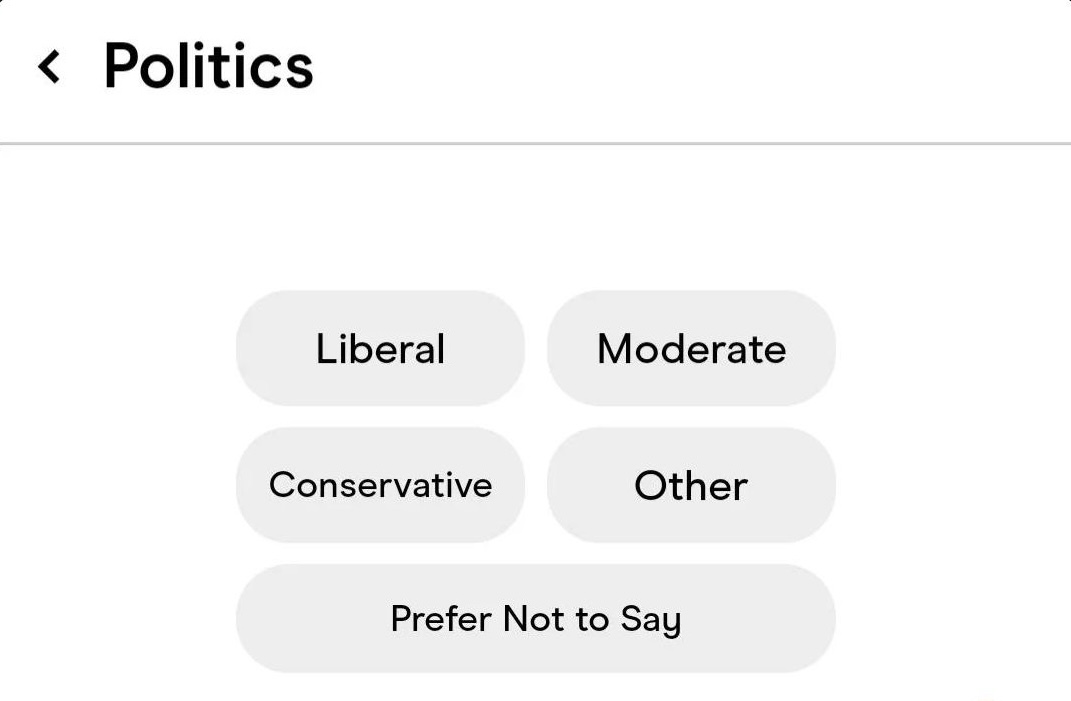

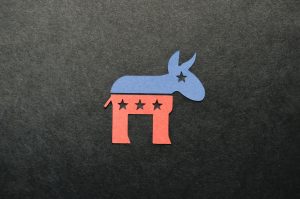
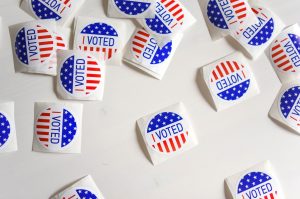
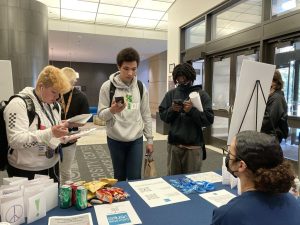

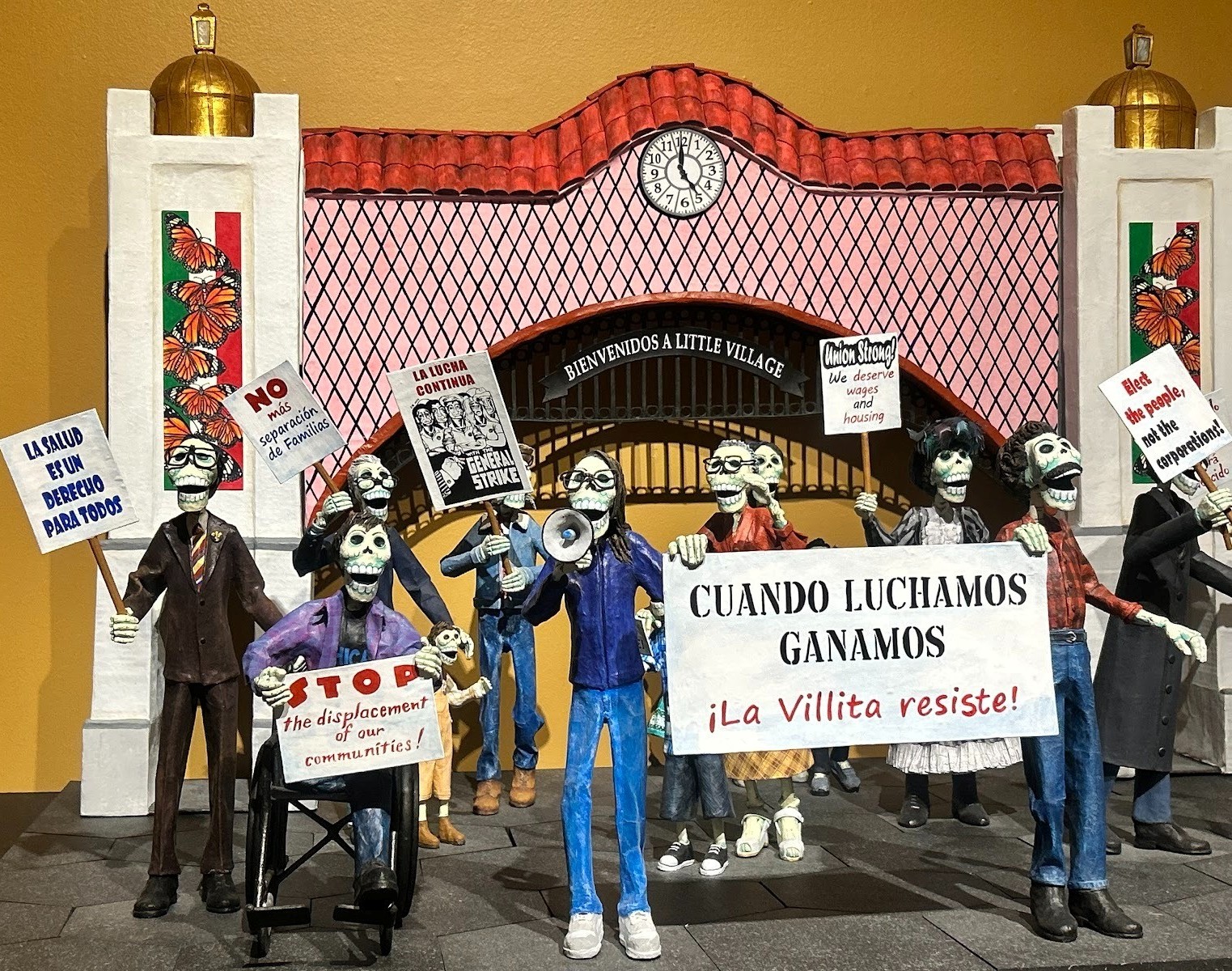
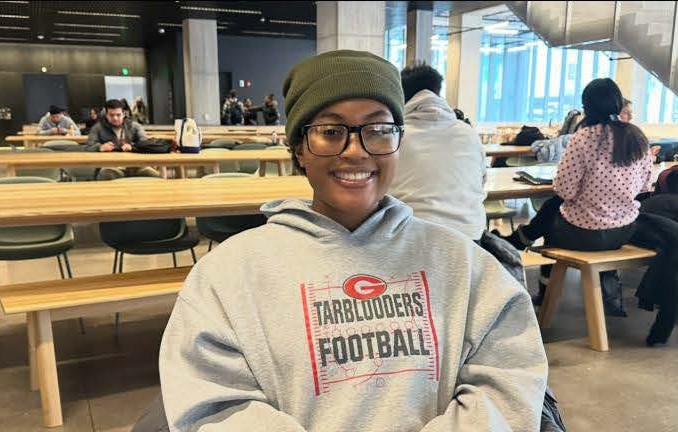
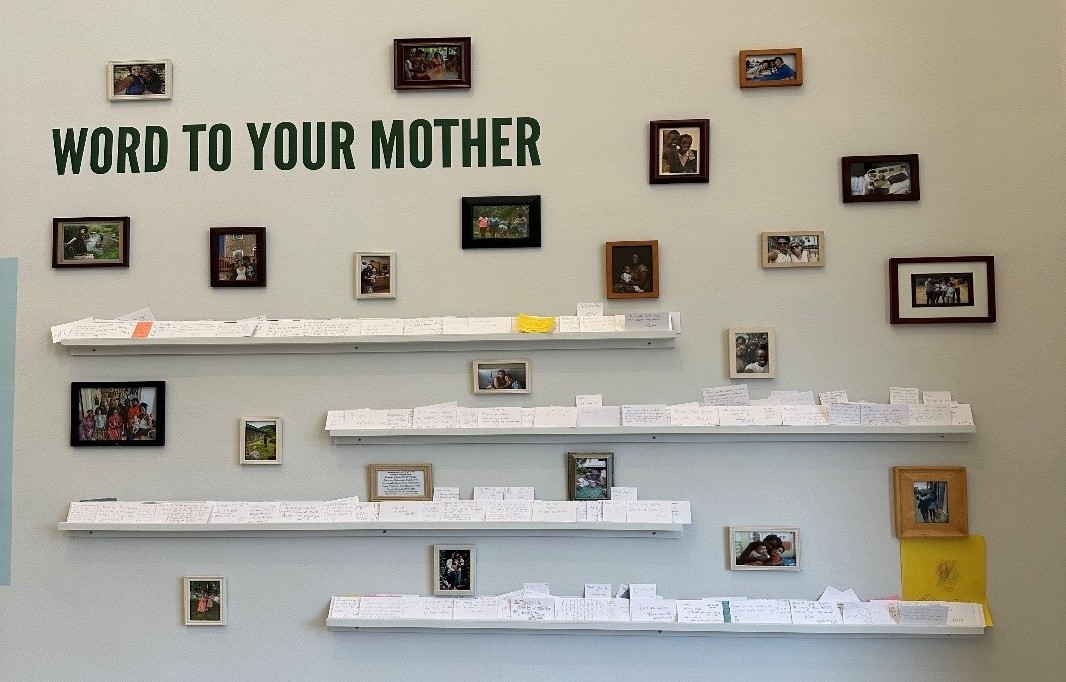


Be First to Comment